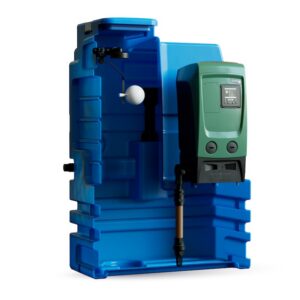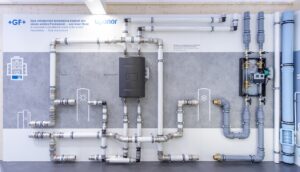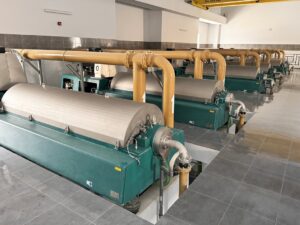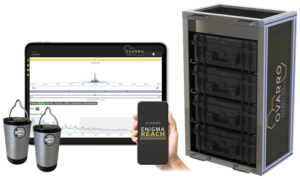Grundfos: Careful Treatment Gives Clean Water
The Romagna Acque water utility company supplies more than 1.1 million people in Northern Italy with clean drinking water. The supply is based on surface water, so treatment is necessary.
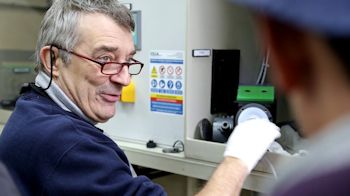
Grundfos
When the citizens of Ravenna in Northern Italy turn on the tap and clean drinking water pours out, it can be hard to imagine the journey the water has been on. Much of it is collected from Lake Ridracoli far from the city. However, the physical distance only comprises a fraction of the transition from lake to drinking water. Before it gets that far, the surface water must be treated, because it is more exposed to harmful bacteria than groundwater.
“The water’s chemical and biological composition is subject to strict legislation, when it’s intended to be used for drinking water. We therefore have to take several different parameters into consideration when we treat the water. It’s particularly important to neutralise bacteria and other microorganisms,” explains Davide Lolli of Romagna Acque.
It is the water utility company which handles drinking water for the citizens of the Romagna region, where Ravenna is situated. These circumstances are not unique to the region. In all of Northern Italy, a large part of the drinking water supply is based on surface water. A situation which is shared many places around the world.
Safety and quality go hand-in-hand
Part of the challenge lies in selecting the best solution for the water purification process. At Romagna Acque, they have chosen to primarily use a disinfection method, where very precise portions of chlorine dioxide are used to treat the water. Treating with chlorine dioxide is safer than traditional chlorine treatment. This method can bring along dangerous by-products such as bromine and trihalomethanes. Romagna Acque has chosen to use Grundfos ISIA systems to treat the drinking water. Part of what makes them special is that they can add the chlorine dioxide directly in – and under – the water. By doing so, the risk of aerial contamination is eliminated. However, this is not the only upside:
“The system is also very effective, meaning that we don’t have to use as many reactors when producing the chlorine dioxide. By using fewer chemicals, we reduce the number of by-products in the drinking water drastically, and thereby enhance water quality,” says Davide Lolli.
At the same time, the solution can be scaled specifically to meet the specific needs of the user, which brings along a high measure of flexibility.
Take care of the water resources
Grundfos ISIA has been a part of Grundfos since autumn 2013. And Grundfos is very happy about the new opportunities this brings for contributing even more to advancement in the quality of water.
“Here in Italy we need to use and treat our water resources in the smartest way possible, as is the case in many other places. We cannot afford waste. The fact that we can help to make a difference to other people through our advanced solutions and help provide drinking water of a high quality is important to us,” says Angelo Colombo, who was Managing Director of Grundfos Italy.
Source: Grundfos Holding A/S

